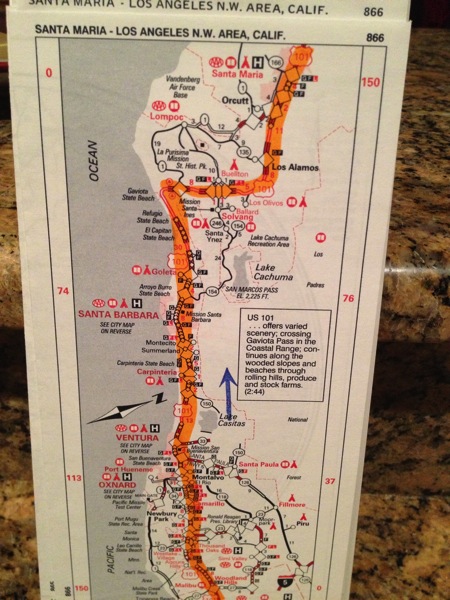Our RV trip got me thinking a lot about the power of the modern world. By which I really mean: the internet and the smart phone. We were in constant contact with any service we required, including mobile mechanics. We made changes on-the-fly to different campgrounds. We easily found the gas stops that made highway exit/entry a breeze. Our family/friends shared the experience with us every day.
Imagine doing the same trip in 2005. Remember these?!

Seriously. Imagine trying to do a couple weeks of travel with a family across the country. The planning and paper maps alone would drive your blood pressure up, nevermind the campground choices, restaurants, and activities. Most of our choices would have happened by chance instead of with the background knowledge and reviews of thousands of people I’ve never met.
One way to say this is that the transaction costs are lower, but that doesn’t do it justice. Lower transaction costs have created an entirely different world with a whole new set of goods and services that couldn’t even exist before. The internet has made nearly every transaction in life low friction.
Back in the 70s a guy named Albert Hirschman wrote a book called Exit, Voice, and Loyalty that says members of any group have only two options to what that group is offering: exit or voice. If they choose voice, they profess some level of loyalty and can improve the group, products or services. If they choose exit, they reduce the power of the group and potentially strengthen something else.
There’s all sorts of interesting ideas here around the differences between economic and political groups, the continuing decline of institutions and the nature of collective action. But what I’m really interested in is how the internet has changed these options.
If we imagine a one-dimensional dial of friction - sort of like Mowshowitz’s Dial of Progress - we can turn the friction up on everything and freeze a lot of the world. Country borders will be stronger, community and political membership will become more important, embedded and longstanding brands will maintain their customer bases, and location will be the primary driver for restaurant revenue. Turn the friction way down and immigration will explode, people will find their own niche groups that match their identity strongly, upstart brands will pressure existing companies and provide more and different options and people will drive to the specialty sourdough bread bakery 20 minutes away.
Low friction solutions naturally tip the world towards exit. Low friction has allowed an increase in the variety of goods and services. It has provided a platform for a huge number of public intellectual perspectives. If one hat or dress or pair of shoes or idea doesn’t look or fit just right it’s easy to order up another.
We look around and lament the lack of loyalty to historical groups before we check Yelp for the best restaurant that serves banana crepes near our vacation rental. We shouldn’t be surprised when church or community group memberships fall off a cliff. How many people go to reunions anymore when you can just stalk your former classmates on Facebook?
I wouldn’t change this world - I think the dial of friction is the secret gear that spins the dial of progress. Low transaction costs drive progress and steady, incremental progress is what creates exponential growth over time by reducing the cost of goods and services and driving the opportunity for new ones. But it also means we’re steadily moving into a world with less and less social cohesion.
It’s also a useful way to identify categories still ripe for disruption. If transaction costs remain high among longtime entrenched actors, there’s a problem ready for fixing. Think car dealerships, real estate, or utilities. The question will be whether the friction, and the government regulation that it is inevitably tied to, can be sidestepped.
The other question is: what will AI do to these transaction costs? Things will probably get a lot cheaper. And Mike Munger is definitely right.
